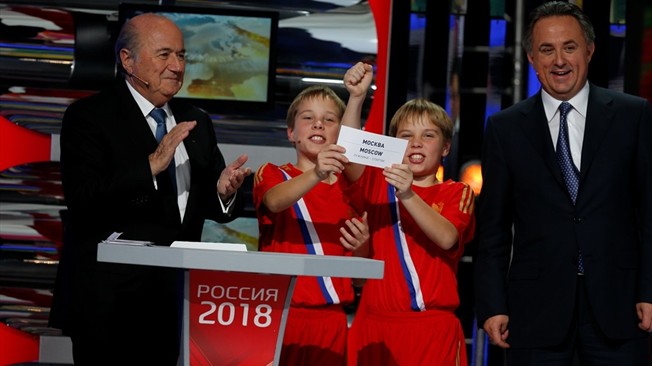By David Gold
September 29 – Fans attending the Russia 2018 FIFA World Cup could spend whole days or more travelling after the confirmation tonight that Kaliningrad and Yekaterinburg are among the 11 cities chosen to host matches.
Also selected to host matches were Rostov-on-Don, Sochi, Moscow, Kazan, St Petersburg, Nizhny Novgorod, Samara, Saransk and Volgograd.
Moscow will have two venues which means that there will be 12 stadiums hosting the 64 matches.
Yaroslavl and Krasnodar were the two who missed out, with Saransk, Volgograd and Rostov-on-Don the other cities who came into this evening unsure if they would receive the right to host matches.
Kaliningrad’s battle to stage games was helped in part by Franz Beckenbauer, President of the Germany 2006 World Cup and a former member of FIFA’s ruling Executive Committee, who came on board to assist them with promoting their bid.
Located between Poland and Lithuania, Kaliningrad is disconnected from the rest of Russia and its selection along with Yekaterinburg in the east means the World Cup will span the whole of the European part of the country.
But it also means, with 2,500 kilometres between the two cities, that travelling between them could be an arduous task.
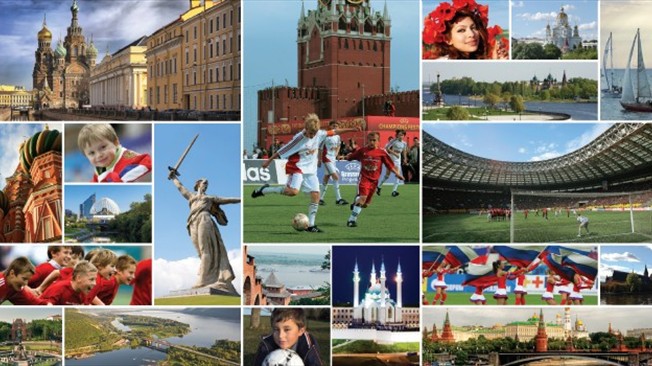
It takes approximately 24 hours just to get from Yekaterinburg to Moscow, unless the new high speed rail network Russian Railways have planned is constructed.
However, there is uncertainty at present over whether Russia will go ahead with its plans to create a high speed rail network connecting the host cities.
Funding for the project is not included in federal spending plans for the next three years.
The new rail network would have cost R5.6 trillion (£112 million/$177 million/€141 million), with 70 per cent due to be funded by the Russian state.
Transport was identified as the biggest weakness of Russia 2018 by FIFA during the World Cup bidding process, when they beat England and joint bids from Belgium and Holland and Portugal and Spain.
The issue will be offset to some extent by the clustering concept, with four different clusters to reduce travel time between venues.
Russia will be aiming to keep teams within one or two clusters, rather than sending them across the country during the group stage of the tournament – unlike 2014 hosts Brazil.
The first cluster is in the north, and consists of Kaliningrad and St Petersburg, and the second will be Moscow and the central region.
The third is the Volga River cluster running from the centre to the south of Russia, which includes Nizhny Novgorod, Kazan, Saransk, Samara and Volgograd.
The southern cluster will be made up of Sochi and Rostov-on-Don, and then there is the stand alone city of Yekaterinburg in the east.
The confirmation of the 11 host cities was the first major landmark for Russia 2018 following the award of the World Cup to the country in Zurich in December 2010.
The announcement was made live on television, on Russia’s Channel One, on their “Tonight” show, and came three months after a delegation from FIFA and Russia 2018 visited all of the prospective host cities to inspect their facilities and potential to stage matches during the World Cup.
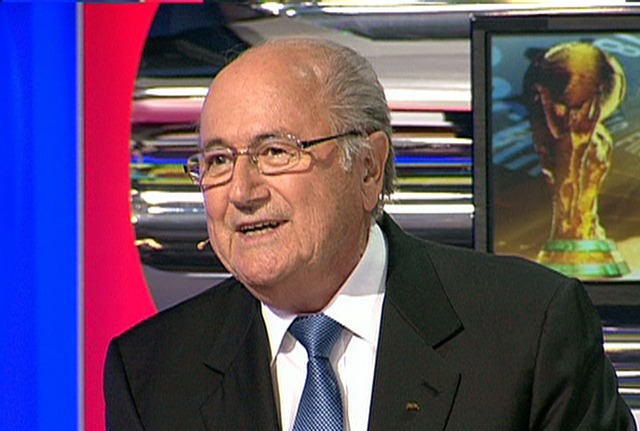
Speaking prior to the announcement, FIFA President Sepp Blatter (pictured above) praised Russia’s preparations thus far, saying: “The selection of the host cities is a very important step and it shows that here in Russia and in Moscow, we are already prepared to start.
“And it is the first time that the World Cup will be staged in Eastern Europe and naturally the first time we are in Russia.
“I am happy that that the youth in this room and in Russia are happy to stage the World Cup!
“It is important, we go with the World Cup around the world, we have been in Europe and the Americas, in Asia, South Africa, soon to Brazil.
“But now we go to Russia!
“We are convinced it will be a great success, because not only you are behind it, all the footballers here, the Duma, all are behind this World Cup.
“I have to make a compliment to Russia, and the local Organising Committee for the professionalism for how they have started to work…you are much advanced.”
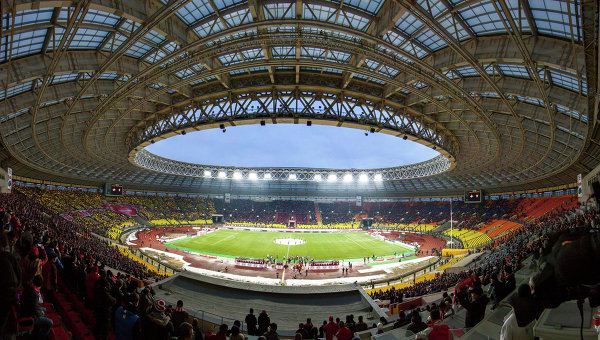
Blatter’s words reflected FIFA’s confidence, and probably relief, at the solid progress of Russia’s preparations for 2018, given the problems that they have faced in Brazil ahead of the next World Cup in two years’ time.
Russia still has a sizeable task on its hands though, with each stadium being used either being renovated or built anew.
It was already known that Moscow would host matches, with the new Spartak Moscow stadium confirmed as the venue which share games with the Luzhniki (pictured above), the main stadium for the 1980 Olympics.
The Luzhniki will host the final and probably a semi-final as well, but it means Dynamo Moscow’s new ground misses out.
St Petersburg is also set to host a semi-final of the tournament along with Moscow.
The decision was made after a meeting of FIFA’s Executive Committee in Zurich.
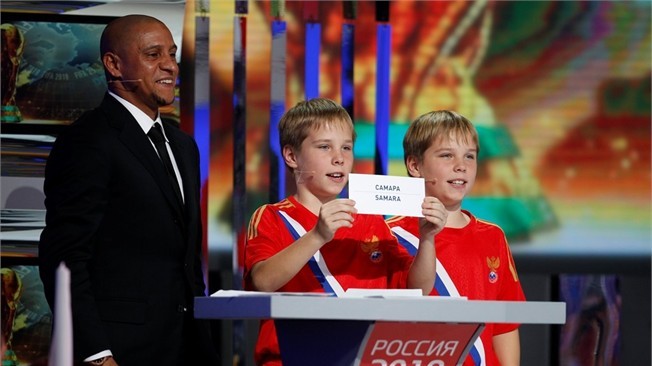
Vitaly Mutko, Russia’s Sports Minister ,who is the chairman of the Russia 2018 Organising Committee, as well as a FIFA Executive Committee member, was also present at the announcement along with FIFA secretary general Jérôme Valcke, the man effectively responsible for the tournament, and Russia 2018 chief executive Alexey Sorokin.
Other guests included former England manager Fabio Capello, who is now coaching Russia’s national team, and Roberto Carlos (pictured above), a member of Brazil’s World Cup winning team in 2002 who is now the sporting director of Russian League side Anzhi Makhachkala.
Mutko said: “The final selection of the 2018 FIFA World Cup Host Cities is an important milestone en route to hosting the tournament in 2018.
“This decision launches the full-scale preparation for the FIFA World Cup in the 11 Host Cities across the country.
“I believe all of them broadly represent the cultural and historical diversity of our nation.
“At the same time, their energetic nature and connection with Russian footballing tradition will allow the FIFA World Cup to leave a powerful and sustainable legacy in all of them.”
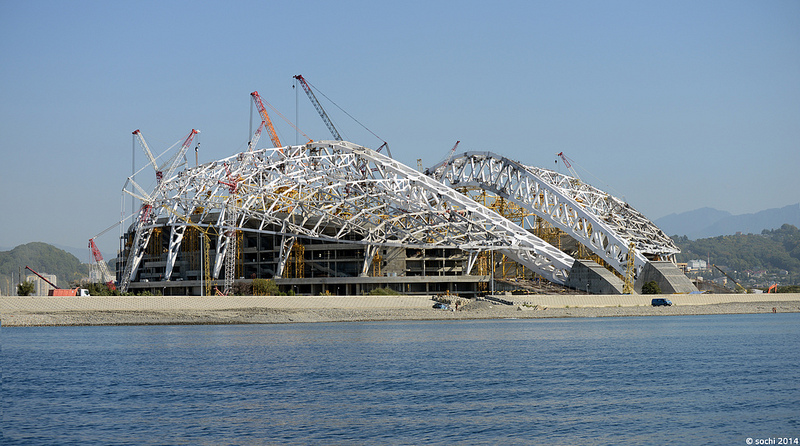
Sochi, where the Fisht Olympic Stadium (pictured above) is being built for the 2014 Winter Olympics, will also become a World Cup venue.
In ethnically diverse Russia, Kazan is the only venue in a largely Muslim region.
The new venue will host football at the Summer Universiade, which is taking place in the city next year.
Vladimir Putin, the Russian President, emphasised the social and physical importance of the World Cup for the country, saying: “We would like to improve the nation’s health and these big tournaments are opportunities to attract people to go for sport.
“It is something that really stimulates economic development.
“We can invest a good amount of money into the right places, to create new jobs, infrastructure.
“It is very important that this will be a good driver for our economy in the construction sector….every job can create thousands of others in other sectors.”
Contact the writer of this story at zib.l1745125235labto1745125235ofdlr1745125235owedi1745125235sni@d1745125235log.d1745125235ivad1745125235

